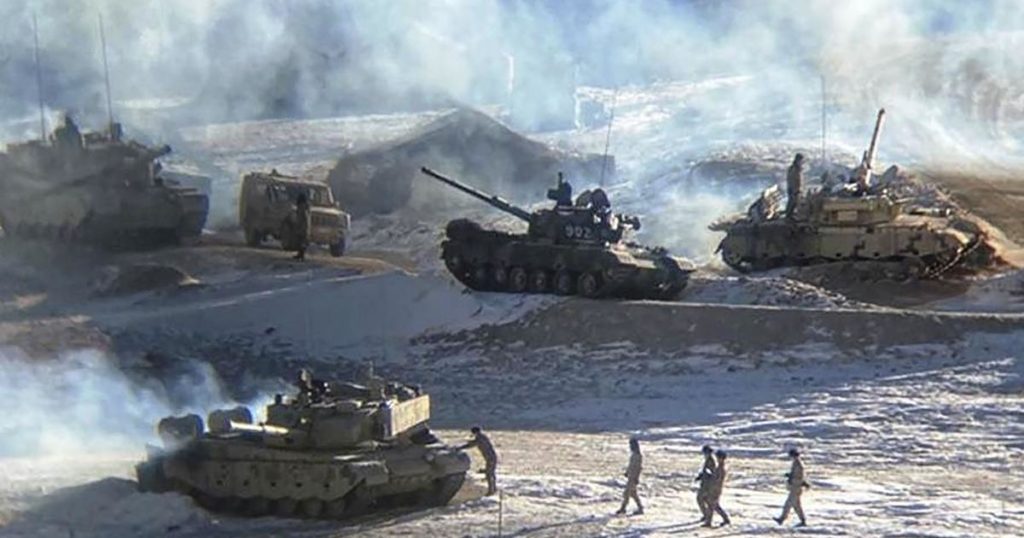In the 1950s an 80-kilometre stretch bordering Uttarakhand was declared a non militarized area and yet Indo-China War broke out in 1962.
Reports are coming out that several high ranking defence officials in Delhi are upset with the Modi government for creating a demilitarized zone near Pangong Lake. Officials who asked not to be named reported to The Economic Times, that while the pullback of troops has calmed tensions for the moment, it has put India at a disadvantageous position as the non-militarized areas work in China’s favour. They said that the areas that were vacated by the Indian troops are of strategic importance and it would be much easier for China to send their troops and capture those areas if it ever wishes to in the future.
The defence officials worry that now that the Indian government has called back all tanks and troops from those areas, there is no way to ensure that China adheres to the agreement and does not launch a surprise operation to capture these vacant tracts of land like it did in May 2020. The officials also revealed that China had earlier rejected an Indian proposal to let troops from both sides to patrol the disputed areas on alternate days.
On 11 February, Defence Minister Rajnath Singh addressed the Rajya Sabha announcing the decision to pull back troops from areas near Pangong Lake and the Kailash range.
“The agreement that we have been able to reach with the Chinese side for disengagement in the Pangong lake area envisages that both sides will cease their forward deployments in a phased, coordinated and verified manner. The Chinese side will keep its troop presence in the North Bank area to the east of Finger 8. Reciprocally, the Indian troops will be based at their permanent base at Dhan Singh Thapa Post near Finger 3.
Similar action would be taken in the South Bank area by both sides. These are mutual and reciprocal steps and any structures that had been built by both sides since April 2020 in both North and South Bank area will be removed and the landforms will be restored,” Rajnath Singh told the house.

Although the announcement did not say anything about the Depsang Plains and Gogra Heights were the Chinese are still blocking Indian troops from patrolling; it significantly reduced tension. Even the Chinese government hailed the disengagement deal, saying it would go a long way in building back the trust between both sides.
However, the creation of such demilitarized zones between India and China is nothing new and China has in the past shown its tendency to break agreements and protocols. In the 1950s, an 80-kilometre patch of land along the southern edge of the Tibetan Plateau and the Indian border state of Uttarakhand was declared no-man’s land. Yet, war between India and China broke out in 1962.
So how well this demilitarized zone helps in maintaining peace between India and China is to be seen. Meanwhile, the defence officials who raised their concern about the disengagement deal can only let the public know about the risks that the government has created for India on the condition of anonymity.

